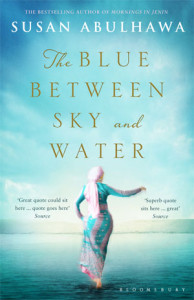Literati – “The library as social experience” ( 16 August 2015)
 My monthly column, Literati, in the Hindu Literary Review was published online ( 15 August 2015) and will be in print ( 16 August 2015). Here is the url http://www.thehindu.com/books/literary-review/jaya-bhattacharji-rose-on-the-relevance-of-libraries-today/article7539673.ece#. I am also c&p the text below.
My monthly column, Literati, in the Hindu Literary Review was published online ( 15 August 2015) and will be in print ( 16 August 2015). Here is the url http://www.thehindu.com/books/literary-review/jaya-bhattacharji-rose-on-the-relevance-of-libraries-today/article7539673.ece#. I am also c&p the text below.
Buying books the traditional way is a cherished subjective experience, heavily dependent on the curating abilities of the book buyer.
My five-year-old daughter asked me, “Why can’t libraries be like bookshops? If we like a book, why must we return it to the library? Why can we not buy and keep it?” I was stumped. It was a perceptive observation.
***
“You either see it or you don’t” was an eccentric American Dennis Severs’ mantra,who converted his Georgian home in London into a time capsule with pieces collected from the 17th century till Edwardian times. Brian Selznick’s absolutely ‘scrumdiddlyumptious’ forthcoming book, The Marvels, is heavily inspired by Dennis Severs’ imaginative lifestyle. To my mind, this mantra aptly marks the rapid disappearance of brick-and-mortar bookstores and at the same time provides a possible solution for their survival.
In Delhi, two iconic bookshops — Fact & Fiction and Galgotia — are closing. There are many factors responsible globally for closure of bookstores, such as rising rents, fewer customers and an increasing use of e-readers like Kindle, iPads and smartphones. Buying books the traditional way is a cherished subjective experience, heavily dependent on the curating abilities of the book buyer. Obviously, a regular customer is wistful at the announcement of their favourite bookstore closing. On the other hand, online retailers have to innovate, evolve and work constantly at providing customer satisfaction without ever knowing who is buying from their portal.
For most readers, it is like being in a dream spell. Having read about a book, many readers want instant gratification and engage in impulsive buying, usually possible only with online retail. It is a human behaviour that has evolved with access to the Internet 24×7 for more than a generation.
Recently, I read a bunch of absolutely delightful titles from the TED Books that take off from where TED talks leave off, such as Pico Iyer’s The Art of Stillness, Chip Kidd’s Judge This and Chimamanda Ngozi Adichie’s We Should all be Feminists. I also read a devastatingly moving novel, The Blue between Sky and Water, by Palestinian writer Susan Abulhawa; a delightful anthology, The Pleasure of Reading,edited by Antonia Fraser; and an excellent collection of commentaries, Nehru’s India, edited by Nayantara Sahgal. War novel Escape from Baghdad! by Bangladeshi Saad Hossain and The Word at War made it to the list. When I discuss these books animatedly with friends, many automatically order these online. This change in human behaviour has affected the lifeline of bookstores.
In a possible model for a bookstore of the future, non-profit Pioneer Works in Red Hook, U.S., opened a ‘remarkably small’ bookstore. It stocks new and used books, local zines, lit mags, children’s books conveniently located at their height and a modest wall spotlighting a rotating small press. Also, the shop clerk assures customers that if they do not find the book title they are looking for, he will order it for them.
Then there is Trilogy in Mumbai, founded by Meethil Momaya and Ahalya Naidu in December 2014. It houses a library and a bookstore; though they are under the same roof they do not share shelf space. Titles are available in Hindi, English and Marathi. The library functions like any old-school library and the bookstore works like (almost) any other bookstore in the world. The very idea of having a bookstore and a library together in the same place without a wall dividing the two was to allow members the freedom to read books without owning them (library) and when they love a book they would like to own, they always have the option of buying it (bookstore). There is a symbiotic relationship between the two spaces. Borrowers very often want to buy the book they have either issued or find in the library. If it is available in the bookstore they can buy it immediately.
There is also the model that legislator Dr. T.M. Thomas Isaac has suggested in Kerala wherein libraries turn into centres for students to gather and study together in the evenings.
These examples illustrate a recommendation made at the Indian Public Libraries Conference 2015 held on March 17-19, 2015 in New Delhi. Recommendation on refurbishment of public libraries, point 8f, states, “Facilities in public libraries should include, ‘multi-purpose social space’ for use by the community extending services beyond the provision of reading facilities.”
Paul X. McCarthy, in Online Gravity: The Unseen Force Driving the Way You Live, Earn, and Learn, illustrates how a new set of economic rules, very different from those in the physical world, are governing businesses. According to him, one of the fundamental consequences of gravity-giant formation is the way in which it is influencing the shape of products, companies and ultimately the whole economy online. But I wonder if the cross-filtering and influencing of experiences across mediums has not already begun? What is the future of libraries and bookstores if they don’t evolve by catering to community demands and expectations? Libraries and bookstores die because they fail to fulfil this. Reading may be a personal experience, but libraries and bookstores are social experiences. Somewhere the customised experiences of individuals increasingly created by blending digital and real services have begun to spill over into the physical world.
15 August 2015


